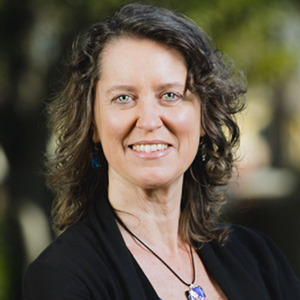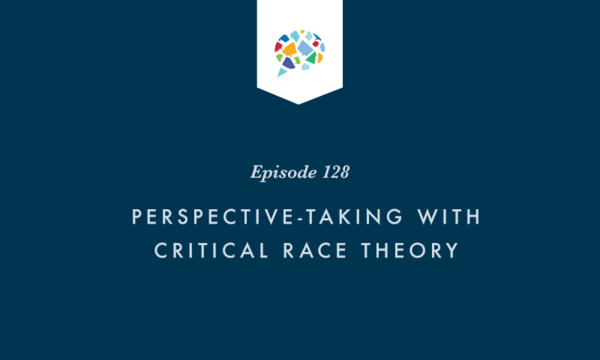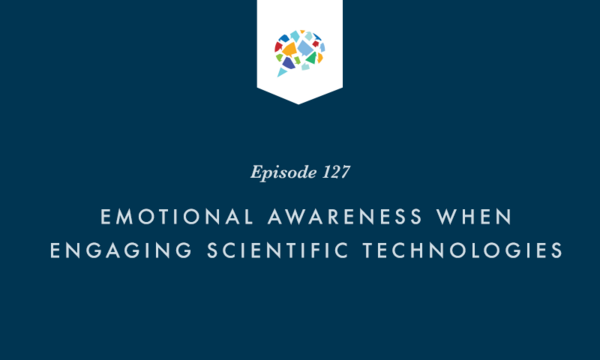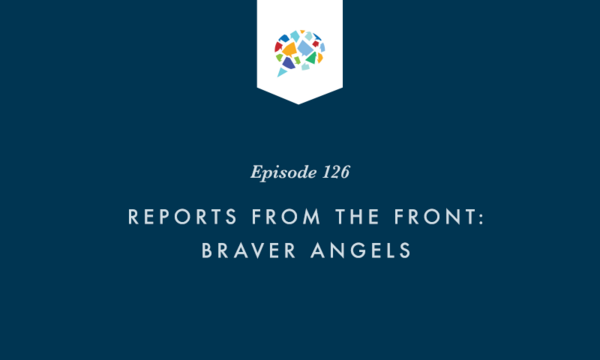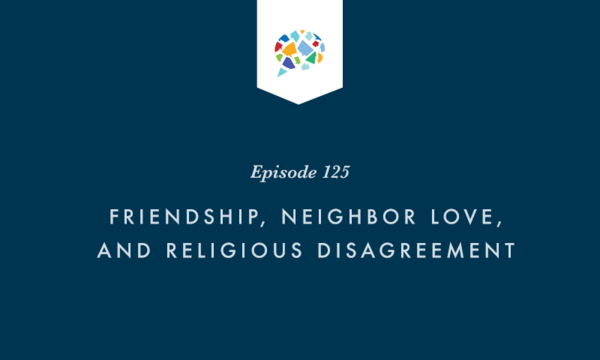
Psychologists Liz Hall (Ph.D.) and Erin Smith (Ph.D.) are back on the podcast to speak with Tim about myside bias, a prevalent phenomenon that also goes by the name of confirmation bias. While myside bias has been around for awhile, cultural conditions seem to to be exacerbating this type of bias. What cost does myside bias exact on our critical thinking, disagreements, and relationships with others? Tim, Liz, and Erin explore these issues and questions and unpack key terms related to myside bias, including affective polarization, and in-groups. The discussion also highlights the importance of being courageous, establishing “equal ground,” and ways to identify blind spots with our own biases.
Transcript
Tim Muehlhoff: Welcome to the Winsome Conviction Project. My name is Tim Muehlhoff. I'm a Professor of Communication at ČŐČŐĹöşÝşÝÔęľĂľĂÔę2023 in La Mirada, California. I'm also the Co-director of the Winsome Conviction Project, where we try to think about differences in a different kind of way. Like, can we find commonality? Can we find projects that we might be able to come together and have a loose connection over these types of issues? Those are the things we've been talking about going on our sixth year. So thank you so much for being a listener.
Today's topic is amazingly important. Over the last six years, we've realized that there's something that's keeping us from making progress, and we're going to try to identify that. We brought in two experts to help us think.
But let me start with this story. My kids were born in North Carolina. They were born just outside of Chapel Hill. If you know college basketball, that is the mecca of college basketball, Chapel Hill. They were born Tar Heels.
When they came home, the nursery was literally in Carolina blue-painted. They had stuffed animals of the Tar Heels. And there was nothing Duke-related in that bedroom. We did not like Duke. Duke is literally 10 miles away from Chapel Hill. And you either like the Tar Heels or you like the Blue Devils, you do not like both. And this is a rivalry that goes deep.
So when we would actually watch basketball games and the kids didn't even know what's going on, we would look at them and say, "Tar Heels," and they would raise their hands up in the air and smile. And we'd say, "Duke," and they would lower their hands and shake their heads, no.
We think that was good parenting, but psychologists might have another word for that, and the word that they might have is something called my side bias. I mean, there was no way for a Muehlhoff child to suddenly say, "Dad, I got to be honest, I think I kind of like Duke over UNC Chapel Hill." Maybe that could happen in adulthood, but we so conditioned those kids that they absolutely understood that God's team was Carolina Blue and it was the Tar Heels.
Now, we kind of laugh at that a little bit, but psychologists are not laughing at something that is called my side bias. So I brought on two individuals for this podcast to give us their expertise when it comes to this phenomenon called my side bias.
First is Dr. Elizabeth Hall, she's a colleague here at ČŐČŐĹöşÝşÝÔęľĂľĂÔę2023. She's a Professor of Psychology at the Rosemead School of Psychology. She's an amazing author. I think she has over 100 academic articles, which is ridiculous. And she's written chapters. She has a book coming out eventually in Varsity Press.
But more important than that, we've been friends for a long time, Liz. And honestly, when it comes to things like understanding emotions and my side bias, I've really learned a lot from you, so when we decided to tackle this issue, I thought I got to get Dr. Hall on. So Liz, thank you so much for joining us.
Liz Hall: It's great being here, Tim.
Tim Muehlhoff: And then we're bringing in another person from Cal Baptist, it's Dr. Erin Smith, who's the Fletcher Jones Endowed Professor of Research at Cal Baptist. Erin, thank you for joining us.
Erin Smith: Thanks for having me.
Tim Muehlhoff: So we kind of laugh about this topic, that there's ways that we do try to bias each other because we have these strong impressions, but it incurs to me that...
And we'll get into all the reasons why I think my side bias has become so prevalent today. But first, maybe we should just define our terms.
So Liz, when you hear the term my side bias, from a psychological standpoint, what comes to mind?
Liz Hall: So it's kind of baked into the word, isn't it, my side bias? It's a bias toward my side. In other words, I am predisposed to confirm what I already believe. So we sometimes call this confirmation bias.
And so, it encompasses kind of a wide range of things that we do in our heads, where we search for and interpret and even remember information in ways that confirm what we already believe. So when new information is available to us, we give preferential treatment to things that support our particular view. We're much more critical or we even ignore information that challenges what we believe.
And yeah, it plays out in all kinds of different domains. It might be your football team, but it might also be ideas or theories or political positions or other kinds of belief.
Tim Muehlhoff: That's right. Erin, would you add anything to that?
Erin Smith: To the definition, no, but to the idea that it is on the rise, which maybe is something we'll get into in just a moment, so I don't want to jump the gun here, but this is actually part of what it means, I think, to be human. We are made for group membership. We don't do well without boundaries. We like to know who is in our circle of care. And so in that sense, I mean, this has deep roots in just how we're made.
I think the problem really comes out when we are in an ecosystem that exaggerates it and when it plays out in a way that obscures the nature of reality because we are so blinded by wanting to be part of the winning side that we fail to actually engage with reality as it is.
Tim Muehlhoff: Erin, let me stay with that for a second. So with my children with this silly example of Duke, North Carolina basketball, they wanted to please their parents. So they learned very quickly, "Hey, if you are praising the UNC basketball team, you get a very positive reaction from mom and dad. And conversely, if you dare say anything positive about the Blue Devils, you would get a look from us like, "Hey, we don't do that here.""
So it's also, that is shaping our biases is I want to please my in group, right?
Erin Smith: Absolutely. Even though we are born kind of pre-equipped to belong to groups and we want to belong, if we are swooped up at an early age and put into a different group, then that's the group we're going to belong to.
And so, all of our sense of kind of who is in the group and what group am I in, we pick these up from a very early age, sometimes explicitly, but often in more powerful ways through these implicit messages like the side eye. If a child of yours says something about Duke, it's like, oh, that gets side eye, that's registered, often at these unconscious, kind of subverbal levels that makes them more powerful in affecting our future choices.
Tim Muehlhoff: Oh, Erin, we did not do side eye. There was nothing subconscious happening in the Muehlhoff household.
But let me just say this, Liz, so this idea of bias is certainly not new. In grad school, I had to read Gordon Allport's, The Nature of Prejudice, that was written in the 1950s, and then Edward R. Murrow, by the way, a fascinating play on Broadway, Good Night and Good Luck, has been livestreamed across the world. For the first time in history of Broadway, a play was livestreamed, George Clooney being Edward R. Murrow.
And I wrote down this quote from the play, Murrow said, "A great many people think they are thinking when they're really rearranging their prejudices."
Okay. So Liz, if this idea has been around for a while, is it fair to say that maybe today somehow it's grown stronger or more prevalent?
Liz Hall: Yeah, so we're talking about two interrelated concepts here, aren't we? We're talking about prejudice, which is what we feel about certain people, and then we're talking about my side bias, which is often then how we think about things that come out of the other person's mouth or that kind of thing. So they're interrelated here.
So I do think that in the case of prejudice, we could make a case that in certain areas, especially in the political arena, that we are seeing a much more prejudice. And so, the way that researchers tend to talk about this is affective polarization.
Tim Muehlhoff: Yeah. Can you unpack that real quick? That might be a term that's kind of new to the listeners, but we're recently becoming aware of this affective polarization.
Liz Hall: Yeah, so ideological polarization just means that people have different ideas. And how different are they? That's ideological polarization. And of course, we couldn't even have, for example, political parties without some kind of ideological polarization, that's, I think, kind of baked into our democracy. So that's been around forever.
So the problem is not necessarily that people think differently, it's the affective polarization. And what that means is that we don't just disagree with people, but we also think that they are bad people and we think negatively about them, and we question their morality, and in a sense, we kind of dehumanize them.
And it's fascinating. What the research shows is that we are at kind of highs in affective polarization that haven't been seen in our lifetime. The last time they were this high is, interestingly, right after the Civil War.
So affective polarization is definitely a problem that we need to grapple with these days.
Tim Muehlhoff: I can think of people that we have dealt with in the past with the Winsome Conviction Project, who would really push back on that and say, "But they are evil. They are legitimately evil, and I'm supposed to call out what is evil. And that party, that group, they are evil. So what's wrong with me calling them out?"
So that thinking becomes very much embedded. And then imagine trying to receive a message from that group if I've labeled that group that way on the frontend of that.
Anything that you would add, Erin, about affective polarization and maybe how it is influencing my side bias?
Erin Smith: I think one of the concerns that I have when you think about labeling an entire group is it minimizes the differences that exist within that group and maximizes differences between groups, but those are often exaggerated.
So when you look at these kind of stereotyped categories of people, for example, one of the things that you find is that there's just as much, if not more variation, within a so-called group of people than there are between these different groups.
And so, we are very good at making mountains out of molehills, making small differences these huge differences, but also then equalizing a group. And I think that's actually really problematic if we want to make real progress on both understanding people and standing up for what we might think is right when we essentially straw-man the other group by saying, "The group is this," as opposed to, "This idea is this," or something along those lines. I think that ends up being really problematic.
Tim Muehlhoff: And from a communication standpoint, the straw man-steel man difference is really important, and I think it's becoming a lost skill. To straw man somebody is I purposely take your weakest argument. I know there's a bunch of arguments out there, but I'm going to take the weakest version and say that's what your group believes.
Where, in contrast, the steel man would be, I'm going to take the very best argument I've heard from your group and maybe even improve upon it to make it even stronger. We're losing the ability to do that.
And if you go to the internet, I mean, I don't want to place everything at the feet of the internet, all of our problems in society, but it is a study of straw man arguments when you read certain positions and you go, "Wow," especially when it's done to us. See, that's what's interesting is as an evangelical, when I read a straw man, I'm like, "Okay, I don't know any evangelicals who actually believe what this person is saying," but it's very easy to jump in on that.
Liz Hall: I just wanted to point out the way that this affective polarization feeds into then a vicious cycle that makes amplifying this trend even more problematic. Exactly for some of the reasons that you and Erin are pointing out that when we feel this way about the other group, it makes compromise seem like a kind of betrayal of our team. And it reduces our willingness to engage with their viewpoints, all we can do is kind of, across a cliff, throw things at each other. And it creates this really us versus them way of thinking about it that then just creates, again, a vicious cycle of increasing affective polarization.
Tim Muehlhoff: That is fueled when we're with our end group, the way that we talk about the president or the way we talk about particular theories, like critical race theory can often get demonized right out of the gates.
My favorite example of affective polarization is because I'm a communication professor, I really love the presidential debates. I mean, I know it can be a circus, and I think, at times, it has deteriorated into more of a power play.
But with this one, I just didn't have a chance, I wasn't going to be able to watch it live. So we're boarding an airplane and CNN is showing it, and literally, the debate starts with one candidate giving their opening, I think it was five minutes, I swear to you, this candidate said three words, and the woman behind me goes, "Liar." And I was like, "Wow. What? I mean, it was three words." And she said it as loud as you could imagine.
And I thought to myself, okay, that is my side bias is I've already predetermined this candidate can say nothing I would agree with, nor surprise me. And if we're in that kind of a trench rhetorical warfare, then Liz, I think you're right. I see no way for this to work. I see no way for us to form any kind of a compromise where my in-group wouldn't look at me and say, "You're woke. You have a compromise to such an extent that I don't know how we can move past this."
Let me read something real quick, Liz, that you wrote. Her eyes just went really wide. And then Erin, I want to get your thoughts on something we're really wrestling with the Winsome Conviction Project. So I would refer some of you to the Christian Scholars Review, it's a marvelous academic journal.
But a couple of years ago, we were asked to do a theme issue on civility, and you, along with some others, I think it was [inaudible 00:16:12], did something on emotions, perspective and civility.
And this is what you wrote, I've used this in a bunch of different places, and footnote, you of course, "When we hear an opinion that differs from ours during public engagement, our moral emotions alert us to a potential threat. We intuitively move away from threatening ideas and towards ones that keep us and our group safe, and we jump quickly to conclusions about the issue, seeing only what is consistent with our position. So I don't recognize good arguments, that actually scares me and it makes me even move more into my community where I'm affirmed for my positions." Right?
Now, I'm speculating here, that woman who said, "Liar," I wonder if she was with her in-group, if they were watching the debate, they all would've shook their heads and say, "Yep, you go. Yes."
So Erin, let me ask you a million-dollar question. It's probably an impossible question, so I apologize ahead of time. If I'm in an in-group that has demonized another group and let's say, for whatever reason, I slowly start to realize, "Boy, I don't know if we're being charitable at all towards this other group," how in the world do you begin to change an in-group?
Erin Smith: No, that is a million-dollar question, in part because in-group actually is a lot of different things.
Tim Muehlhoff: Oh, unpack that.
Erin Smith: Well, I think about you have your family, that's a certain kind of in-group. You have your small group at church, that's a certain kind of in-group. You have your church community. So these are like nested kinds of in-groups at different levels of, I'm going to use the word influence or control.
So the way, if I notice that my family is starting to behave in a way that is unbecoming to our calling as Christians, I'm going to engage in that differently than I would if I'm noticing things at a church or even a denominational level because I have different roles in these different groups.
But I would say that a general principle that I think research says is really important is that we find shared ground. The phrase that researchers will sometimes use for this is value congruence.
And so, if I am in a group, for example, of Christians, I might appeal to particular kinds of Christian virtues that I know we agree on as an in-road to the more difficult conversation about something that I'm noticing is really lacking charity or problematic for other things.
I think one of the reasons this is so hard, and I'm speaking both in my read of the research, but also for me personally, one of the things that's really hard is anger wants to assert itself. And there is a difference between asserting oneself and actually having effective conversation and influence.
And I think it feels more satisfying to hoot and holler, even if that's with quiet words. It feels more satisfying to discharge that anger than it does to sit and listen because there isn't a sure end at the end of sitting and listening.
It actually requires a lot more trust and surrender that you are not the one responsible for changing someone else's mind, rather, we partner with the Holy Spirit. And in that, I am changed as well.
Tim Muehlhoff: So we're not responsible for changing other people's minds?
Erin Smith: I don't think we can.
Tim Muehlhoff: Okay.
Erin Smith: I think we play a role, but I mean, I think about, and I'm blanking on where exactly, but when Paul says you're not following Paul or Apollos, right? Someone plants the seed, someone waters it, but it's God who makes it grow. And so we have a role to play to be sure, but that role is not controlling the outcome.
Tim Muehlhoff: Oh, that's really good. Erin, can we stay with this real quick? So I want to make sure I'm following what you're saying because I really liked the, you said value conferrence?
Erin Smith: Value congruence.
Tim Muehlhoff: Oh, congruence. Okay. So tell me if I'm on the right track. So I'm in a group where I start to get convicted, like, maybe we're talking about this candidate in such uncharitable terms that I just don't want to do that anymore and maybe even challenge the group.
So we look at a value, let's say compassion, and that in the group, obviously, compassion is very important, we commend it when people are compassionate, the scriptures augment that kind of perspective. So once we lay that territory, then is it possible to say, "Hey, obviously, I didn't vote for this person per se, but I think this was a compassionate response." Might that be one way to try to interject that into the conversation?
Erin Smith: Yes. I think that's great. And actually, I like that it was framed as both a statement, but inviting a response, sort of like a question, where you are not coming in and saying, "You all are lacking compassion."
Tim Muehlhoff: Oh, yeah.
Erin Smith: "Wouldn't we agree on that, that that's something that's important to us?" But rather, it's this, "We all value this thing and I'm having this sense and I'm wondering what you all are feeling about my sense of this thing, about how we're responding, about how we're engaging in this conversation."
And so that sets up the conversation to allow for equal ground to start with, that everybody can contribute rather than you coming in as someone who's identified sin and are going to speak to it.
Tim Muehlhoff: Oh, that's so good. But why do we want to do that? Well, I feel that sometimes, like, "You all need to get your act together as Christians."
I'm reminded what Jesus said about, remember, the moat and the sawdust in the eyes. You're looking at the sawdust in a person's eye and ignoring your own moat. I think that's really interesting.
Liz, add anything as you're listening to that kind of perspective of how do you frame this for your in-group, depending on the in-group?
Liz Hall: I love the way that you have been talking about framing it. I was actually thinking about how much courage it requires to stand up to people in our in-group that we tend to think about courage in terms of facing the enemy, but I would say that it actually requires probably more courage to stand up to people within our own tribe, people who are like us when we see them going down a direction that we think is not a particularly good one.
Tim Muehlhoff: And it doesn't always go well. Sometimes you have that courageous moment and it just doesn't go well.
I'll tell a very quick story. Erin, we're doing something unique at ČŐČŐĹöşÝşÝÔęľĂľĂÔę2023. Brigham Young University has sent 15 students, three faculty to different religious schools on the West coast to teach students how to engage with each other, and ČŐČŐĹöşÝşÝÔęľĂľĂÔę2023 was one of those schools. So we got a chance to bring together our ČŐČŐĹöşÝşÝÔęľĂľĂÔę2023 students and LVS students to have these conversations.
One thing we did is we made a pledge that we would not talk negatively about each other after that meeting. So I was with a person in a different context, not to identify anybody. And that person said, "Hey, how'd the conversations go?" And I said, "Oh, I thought that went really well." And then this person, she just kind of made a snarky remark, she just said, "Did you ask them about their magic underwear?" And left.
And I thought to myself, doggone it, I can't make that kind of pledge publicly and not follow through. So I remember finding that person and just saying, "Hey, would you mind, since we had this meeting, not saying that about LDS people? Would you just mind?" Right?
And the response was, "Thank you for speaking truth and love into my life." No, it was not the response. The response was, she looked at me and said, "You need to relax. What? I'm supposed to think about everything I'm supposed to say before I say it?" And I wanted to say, "Actually, yes." But it did not go well. And we both just got... I mean, I walked away a little steamed.
And I thought to myself, okay, that was a courageous moment, I think, that did not go well. So I either could overreact and say, "Well, I'm never doing that again. I'm never going to try to do that." Or I'm going to say, like, Erin, what you said is, "I gave the Holy Spirit, maybe, an opportunity to work, and it just didn't happen to work in that situation the way I would've wanted it to work."
Liz Hall: Yeah, I think it's helpful to frame the virtues like courage within the master virtue of love. And if we take Christ's love as the model for that, then it's kind of part of the way that these things play out that when we are loving to others, we might expect that there, instead of people being so grateful to us and responding in all kinds of positive ways that it might be the kind of sacrifice that's sometimes necessary, throwing ourselves a bit under the bus for the sake of giving others a chance to be better.
Tim Muehlhoff: Yeah. Yep. And I think in that situation, for me to leave and say, I'm not sure I'm always a good judge how I come across. So I might've thought I came across perfectly, where there might've been some edge to it or... That's always interesting about the self-reflection, which brings me...
Let's close this discussion by quoting Calvin and his institutes. He begins it with a really interesting idea. Nearly all the wisdom we possess consists of two parts, the knowledge of God and ourselves.
So Erin, what might be some of the ways I can begin to understand what bias I might be operating out of when I particularly don't see it? It strikes me that a blind spot is by definition, a blind spot. I don't necessarily see my own prejudices or my own bias.
Erin, anything come to mind how we might want to try to surface that?
Erin Smith: Yeah. There are, I think, a number of different things, but the one that really looms large in my mind is the role of intimate community where there is the intentional, and I'm going to say agreed upon practice of speaking these kinds of truths to each other.
Rowan Williams, in one of his books, quotes another philosopher who says, "You can't see the back of your own head, but we actually need other people to see that part of ourselves." Even if we say, "Oh, I can do the double mirror trick," you're not actually looking at it head on, only a different set of eyes can do that for us.
And so I think that as we want to understand ourselves more, there is a lot of work that we're going to do on our own, and for me, in the presence of God, but I can't keep it there, I need to be able to bring that to another person or persons and say, "Help me see the back of my own head in light of what God has been revealing to me. Has God been revealing this to me? Give me some feedback on these things." And so there's a really important role for community there.
Tim Muehlhoff: And I love that. Don't shoot the messenger, like the person who says, "Boy, you do get defensive when this topic comes up." And I'm like, "I get defensive?" And it's like, "Yeah, I think you do." And so not to shoot the messenger that God might be communicating that through the courage of somebody in your small group, neighborhood, family, who wants to say, "I do think this gets a reaction out of you, it's interesting to ask why."
Liz, anything, add to that?
Liz Hall: My husband calls emotions the dashboard of the soul. And I think that there's this really great idea that if we pay attention to our inner world, if we figure out where it is that we're feeling kind of these strong, these moments of whether it be anger or disgust or whatever the strong emotion is that is really capturing you, that that is kind of a place where we can then start digging down, as Erin said, maybe asking other people for feedback in that area.
Or even just in ourselves, in the Holy Spirit, in God's presence, wrestling with what is that emotion about? What's that tapping into? What's that underlying thing and how is that then influencing the way that I listen to people, the way that I communicate to people, the way that I'm interacting with others in the world?
So that would be something to add to what Erin said.
Tim Muehlhoff: And what causes me to be defensive, to unpack that a little bit of why. Rather than responding so quickly and dismissing it, might be good to step back.
One of the criticisms of the Winsome Conviction Project is you're all winsome, no conviction. And my initial reaction to that is, "Get out of here." But that's probably to step back and say, okay, what's fueling that perspective? And I need to be open, I think at least, to considering from their perspective whether that's a legitimate critique and that's hard to do. That's the attending to the inner world.
Hey, listen, I would love to continue this conversation. Can I bring you two back to continue the conversation sometime in the future?
Liz Hall: Let's do it.
Tim Muehlhoff: Erin, would that be good?
Erin Smith: I'm here for it.
Tim Muehlhoff: Awesome. Hey, thank you for listening to the Winsome Conviction Project. If you want to find out about us, go to winsomeconviction.com. All the past episodes are here that you can take a look at, sign up for our quarterly newsletter.
There's a lot of really interesting things that we're trying, including this partnership with Brigham Young University to open up lines of communication between evangelicals and the LDS church. So thank you so much for listening.
 ČŐČŐĹöşÝşÝÔęľĂľĂÔę2023
ČŐČŐĹöşÝşÝÔęľĂľĂÔę2023